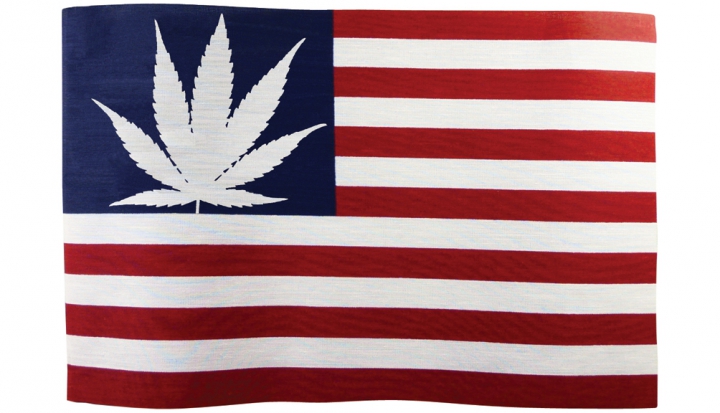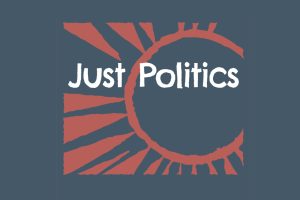We need to weed through the pros and cons of marijuana use before rushing into a decision on its legalization.
Sounding Boards are one person’s take on a many-sided subject and do not necessarily reflect the opinions of U.S. Catholic, its editors, or the Claretians.
In 2010 the California Cannabis Initiative qualified for the state’s ballot. Had it passed, it would have decriminalized certain offenses and permitted personal consumption and cultivation of cannabis sativa, the drug commonly known by its Mexican colloquial name, marijuana, and by many other names, including grass, reefer, pot, dope, weed, bud, Mary Jane, and hippie lettuce. The debate about this vote here in California was contentious, and the initiative failed, with 53.5 percent of voters opposed. The controversy prompted me to learn more about cannabis, and in doing so I found several moral and social concerns about decriminalizing cannabis.
Although the California initiative was defeated, support for changing the laws on marijuana usage has increased nationwide. Fifty-eight percent of Americans support making marijuana legal, according to a CNN/ORC International survey released in January 2014. This is the highest percentage of support for legalized marijuana ever recorded, marking a 12 percent jump in support since 2012. A recent survey in the New England Journal of Medicine also indicates strong support for medical marijuana.
Pundits describe this growing support as “a tectonic generational shift” and “a major milestone,” comparing the legalization of marijuana to same-sex marriage, noting that both have moved from being outlier issues just a decade ago to mainstream issues today. Age is the strongest predictor in attitudes about the legalization and morality of medical and recreational marijuana usage. Young adults (18–29) are more than twice as likely than seniors (65 and older) to support legalization, while seniors tend to believe that marijuana use is a sign of America’s moral decline.
Even though the federal government classifies marijuana as a Schedule I controlled substance along with heroin, ecstasy, and LSD—implying that it has a high potential for abuse—20 states plus the District of Columbia currently allow the use of medical marijuana. The drug is composed of at least 85 diverse chemical compounds, with THC being the compound that stimulates the brain to release dopamine, creating euphoria while often inducing hallucinations and delusions. CBD is the compound primarily responsible for alleviating certain medical problems. It is telling that most marijuana dispensaries make their money on products that are high in the psychoactive compound and low in the component that offers medical benefits.
In 2013, voters in Colorado and Washington State decided to become the first in the nation to legalize and regulate small amounts of marijuana for recreational use. The U.S. Justice Department will not challenge the legality of these referendums provided that these states maintain strict rules regarding the drug’s sale and distribution, and keep it away from children, drug cartels, federal property, and out of other states. Colorado’s recreational use of marijuana became effective on January 1, with an ounce costing about $200 (nearly double the price of medical marijuana). California is poised to introduce a similar referendum in 2014, and a handful of other states will follow by 2016.
Colorado is projected to take in $67 million in marijuana taxes in 2014, the first $40 million earmarked for school construction. A partner in four Denver-area dispensaries comments, “We want to be transparent, legit, and recognized as an industry that pays millions of dollars in taxes a year.”
Federal law prevents more than half of Colorado’s legal marijuana merchants from using bank accounts or credit cards. This forces a multimillion dollar business to operate in cash, which is then often stored in back rooms, warehouses, and safes. This lack of access to banking is the single most dangerous aspect of legal marijuana. U.S. Attorney General Eric Holder said in January that lawful marijuana businesses should have access to the American banking system, and that the government would soon offer rules to make this happen.
Compassionate use of marijuana for medical reasons has proven immensely effective, helping patients with chronic diseases, epilepsy, multiple sclerosis spasms, bipolar disorder, relieving nausea associated with chemotherapy, and serving as an appetite stimulant for AIDS patients. As demonstrated in Weed, the August 2013 documentary by CNN’s chief medical correspondent Dr. Sanjay Gupta, families have found marijuana to be nothing short of miraculous for children with severe autism. While the use of marijuana for medical purposes has proven effective, it is too soon to assess short- and long-term effects of recreational marijuana.
It is critical to address certain social and moral issues before more states imitate the referendums of Colorado and Washington State. First, there is no hard evidence that marijuana is a gateway drug to the use of other stimulants such as heroin. However, the 2012 book Smoke Signals: A Social History of Marijuana—Medical, Recreational, and Scientific (Scribner) by Martin Lee testifies that troubled adolescents who start smoking marijuana at a young age are more likely to become heavy users, drop out of school, and display various behavioral problems. Seventeen percent of adolescents who use marijuana regularly become addicted to its use. Roughly 36 percent of 12th graders reported having used marijuana in 2013. This is a serious moral and social issue that legalization will only exasperate, no matter what safeguards are in place.
The marijuana experiment in Colorado and Washington State demands a four-fold scrutiny: Marijuana sold at retail shops costs more than illegal marijuana and enhances the future of black market sales; marketing recreational use of marijuana might deliberately target minors; cross-border trafficking may increase; and the use of one substance might well encourage the use of others, creating dire public health problems. For example, some studies have shown a marked reduction in white blood cell response—the body’s prime defense against infection—in marijuana smokers of any age.
In a recent interview with the editor of the New Yorker, President Barack Obama said that pot use is no more dangerous than alcohol. He views its use as a bad habit, not much different from cigarettes. Obama argues that the “war on weed” has disproportionately affected minorities, mostly African Americans. It is true that this “war” raises serious social justice issues as it disproportionately affects minorities who are arrested, prosecuted, and jailed for possession of marijuana. It also spends an inordinate amount of tax dollars to rein in and punish pot smokers.
President Obama is wrong, however, in placing marijuana use on par with cigarettes or alcohol. This is a dangerous message which tells kids that “doing drugs is not a big deal.” A 2012 National Survey on Drug Use and Health reported that 4.3 million Americans have “marijuana dependence,” many of whom are adolescents. Legalizing it would open the door to more abuse. Pop star Lady Gaga recently disclosed, for instance, that she smokes up to 20 joints a day as a form of “self-medication” for anxiety and “numbing myself completely.”
Life and physical health are precious gifts entrusted to us by God, and, as the Catechism of the Catholic Church tells us, we must take reasonable care of them. Legalizing the use of recreational marijuana translates as permissiveness, with little consideration for one’s bodily and spiritual health.
Marijuana is a drug and an intoxicant potentially damaging to the integrity of one’s body and soul. It furthermore abuses the Catholic virtue of temperance, as outlined in the catechism. Catholic moral tradition teaches that for human persons to flourish, we must use our reason to decide what is best for our well-being. If any activity undermines or degrades our rational capacities, we have moral reasons to avoid that activity. The THC level in recreational marijuana often induces hallucinations and delusions and diminishes the use of one’s full reasoning abilities. In fact, about 12 percent of fatal auto accidents in the United States involve marijuana use.
It is premature to stampede into a permissive attitude toward the recreational use of marijuana. During his visit to Rio de Janeiro last year, Pope Francis spoke out against the “liberalization of drug use.” Drug problems, he said, already ravage the lives of young people, and society should not multiply this problem exponentially. Instead of sowing the seeds of “suffering and death,” Francis calls for “educating young people in the values that build up life in society.” When it comes to decriminalizing the use of marijuana in the United States, we should heed Francis’ call.
And the survey says…
1. I think that marijuana should be legal in:
42% – Situations where it has a proven medical benefit and only with a prescription.
33% – All cases for any use.
12% – Never in any case.
6% – For recreational use.
7% – Other
2. Tax dollars from the legalized sale of marijuana would have many benefits for society that would outweigh the potential risks.
47% – Agree
44% – Disagree
9% – Other
3. The group that would benefit most from the legalization of marijuana would be:
42% – People who can use it for medical reasons.
14% – Corporations that would earn big profits from manufacturing and selling legalized marijuana.
14% – Recreational marijuana users who would no longer have to worry about legal penalties.
11% – Communities who would benefit from increased tax revenue.
10% – No one would benefit.
9% – Other
Representative of “other”:
“It would be a win for many: medical reasons, increased tax revenues, and reduced crime.”
4. The war on drugs has been a flop and I think we should end it.
52% – Agree
33% – Disagree
15% – Other
Representative of “other”:
“We need a more constructive course that focuses on rehabilitation over punishment.”
5. The Catholic Church should:
54% – Urge caution when it comes to using legal drugs, but not oppose them in all cases.
12% – Only oppose the use of drugs that are illegal, like cocaine and heroin, but have no stance on legal drug use.
9% – Be opposed to all drug use, legal or illegal, including alcohol and tobacco.
6% – Tell Catholics to make their own personal choices on drug use, regardless of legality or potential harm.
3% – Not say anything about the morality of drugs at all.
16% – Other
Representative of “other”:
“Approach the question of drug use with love and compassion.”
6. Legalizing marijuana is the first step on a slippery slope to decriminalizing the use of more dangerous drugs.
37% – Agree
56% – Disagree
7% – Other
This article appeared in the May 2014 issue of U.S. Catholic (Vol. 79, No. 5, pages 23-27).
Results are based on survey responses from 219 USCatholic.org visitors.
Image: Angela Cox













Add comment